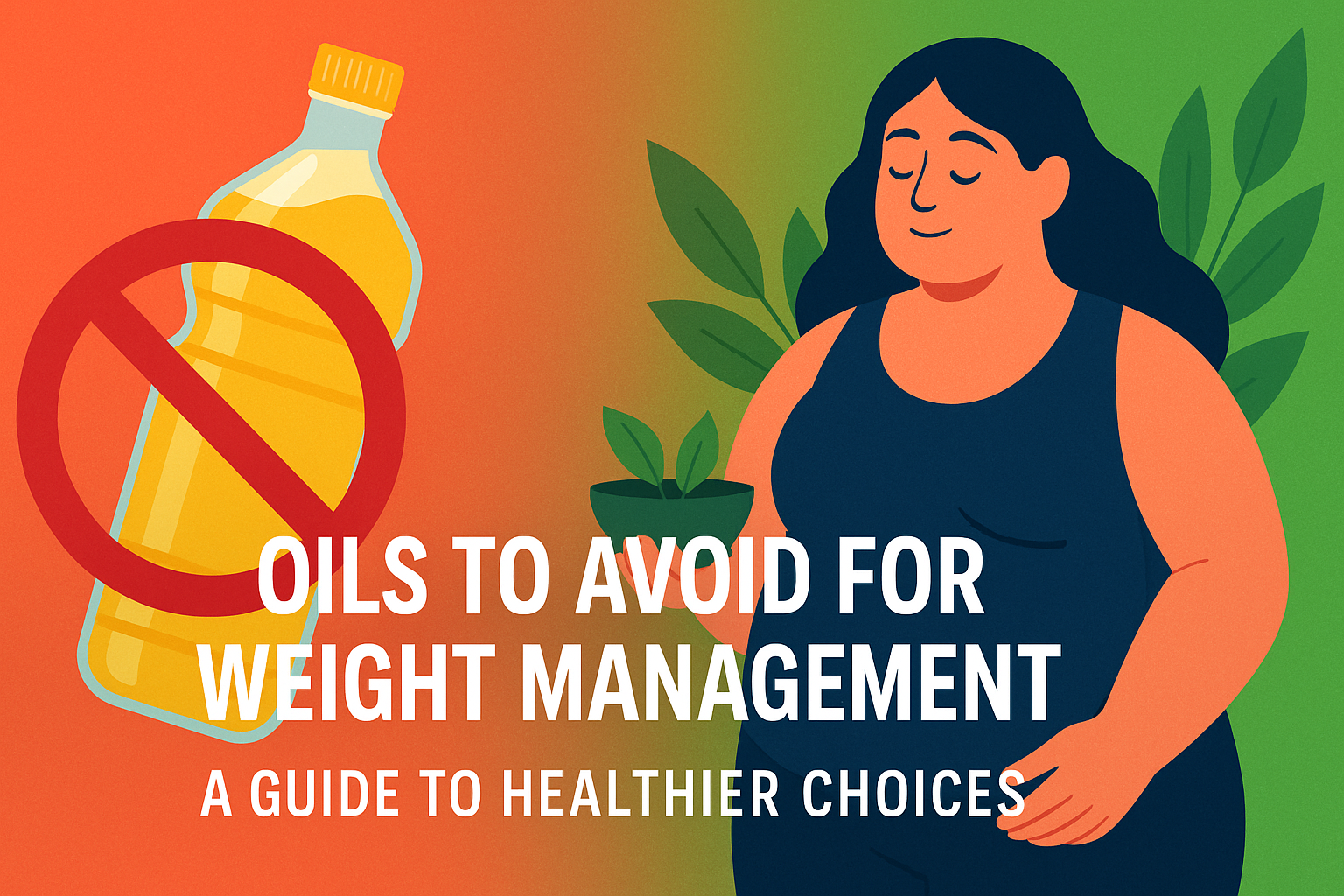To support weight management, avoid trans fat oils (e.g., partially hydrogenated oils), highly refined seed oils (e.g., soybean, corn), palm oil, and heavily processed canola oil due to their potential to promote inflammation and weight gain. Opt for healthier alternatives like extra virgin olive oil, avocado oil, or flaxseed oil in moderation.
If you’re overweight, you may want to limit or avoid certain oils that are high in unhealthy fats, promote inflammation, or contribute to weight gain. Here are the main types of oils to consider avoiding or minimizing, based on their nutritional profiles and health impacts:
- Trans Fat Oils (Partially Hydrogenated Oils)
- Examples: Partially hydrogenated vegetable oils (e.g., some margarines, shortenings).
- Why Avoid: Trans fats increase LDL (bad) cholesterol, lower HDL (good) cholesterol, and are linked to weight gain, heart disease, and inflammation.
- Note: Check labels for “partially hydrogenated” oils, as even small amounts can be harmful.
- Highly Refined Seed Oils High in Omega-6
- Examples: Soybean oil, corn oil, cottonseed oil, sunflower oil (non-high-oleic versions), safflower oil.
- Why Avoid: These oils are high in omega-6 fatty acids, which, when overconsumed, can promote inflammation and disrupt the omega-3 to omega-6 balance. Chronic inflammation may contribute to weight gain and metabolic issues.
- Note: These are common in processed foods, fried foods, and restaurant cooking.
- Palm Oil (Non-Sustainable or Highly Processed)
- Why Avoid: High in saturated fats, which can raise LDL cholesterol and contribute to weight gain if consumed in excess. Some palm oils are heavily processed, reducing nutritional value.
- Note: Look for sustainably sourced palm oil if you must use it, but moderation is key.
- Canola Oil (Highly Processed Versions)
- Why Avoid: While canola oil can be a source of omega-3s, highly processed versions may contain trans fats from refining or be high in omega-6. Overconsumption may contribute to inflammation.
- Note: If choosing canola oil, opt for cold-pressed or organic versions and use sparingly.
Healthier Alternatives
Instead of the above oils, consider these for weight management and overall health:
- Olive Oil (Extra Virgin): Rich in monounsaturated fats and antioxidants, supports heart health, and may aid weight control when used in moderation.
- Avocado Oil: High in healthy fats, good for cooking due to its high smoke point.
- Coconut Oil: Contains medium-chain triglycerides (MCTs) that may support metabolism, but use in moderation due to high saturated fat content.
- Flaxseed Oil: High in omega-3s, great for dressings (not cooking due to low smoke point).
Tips for Weight Management
- Moderation: Even healthy oils are calorie-dense (about 120 calories per tablespoon), so use small amounts.
- Cooking Methods: Opt for baking, steaming, or grilling over frying to reduce oil use.
- Whole Foods: Focus on getting healthy fats from whole sources like nuts, seeds, avocados, and fatty fish to reduce reliance on processed oils.
If you have specific dietary restrictions or health conditions, consult a dietitian for personalized advice.



